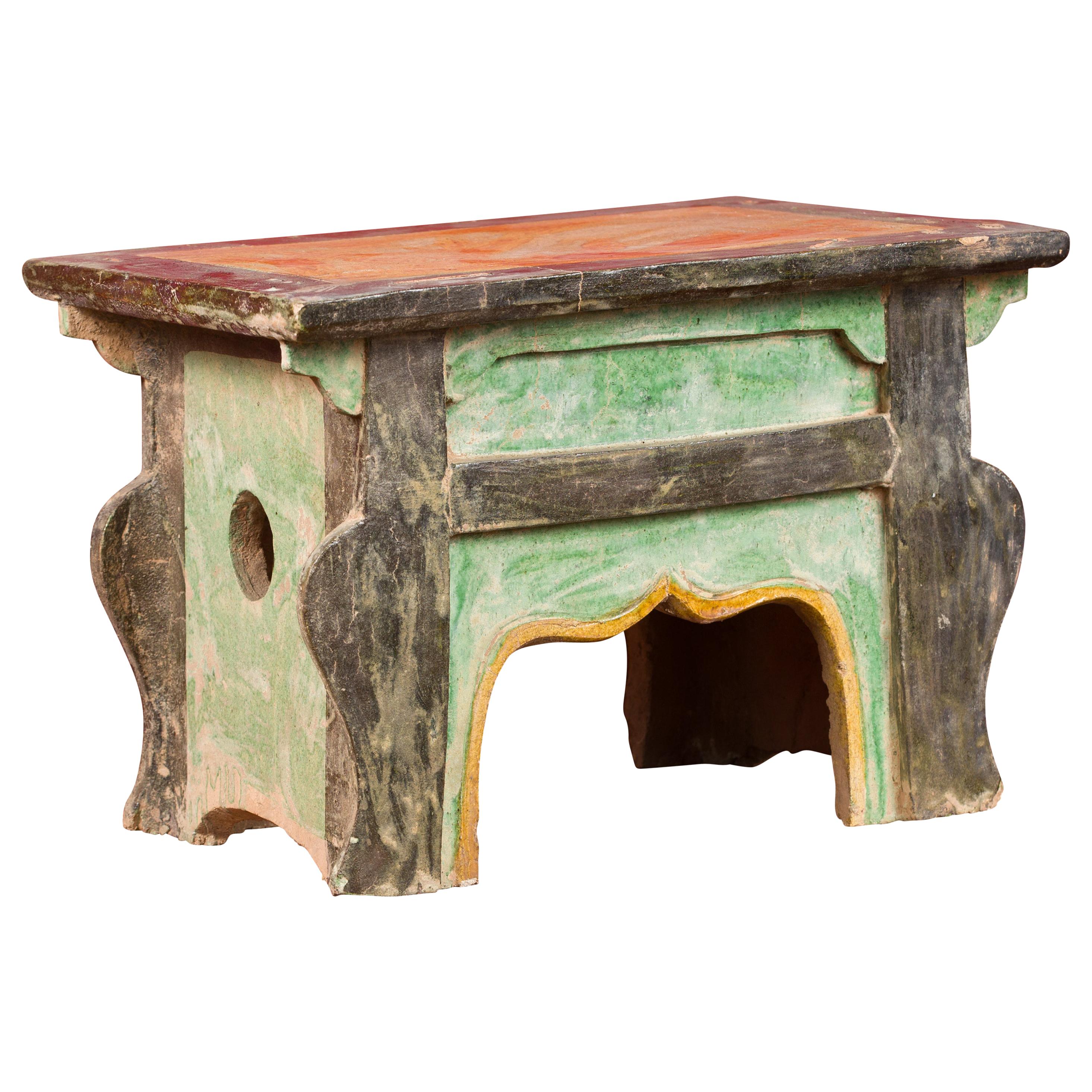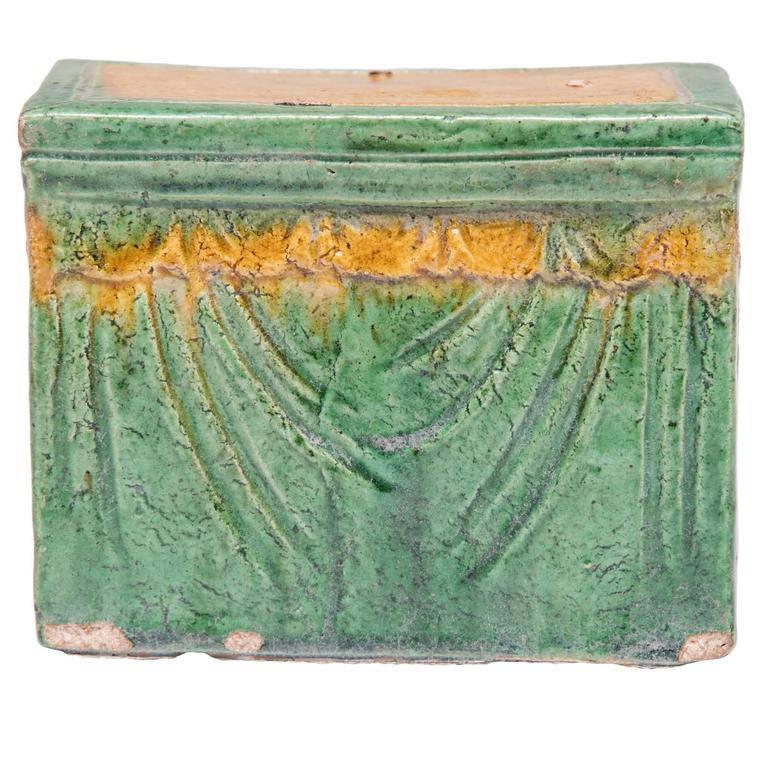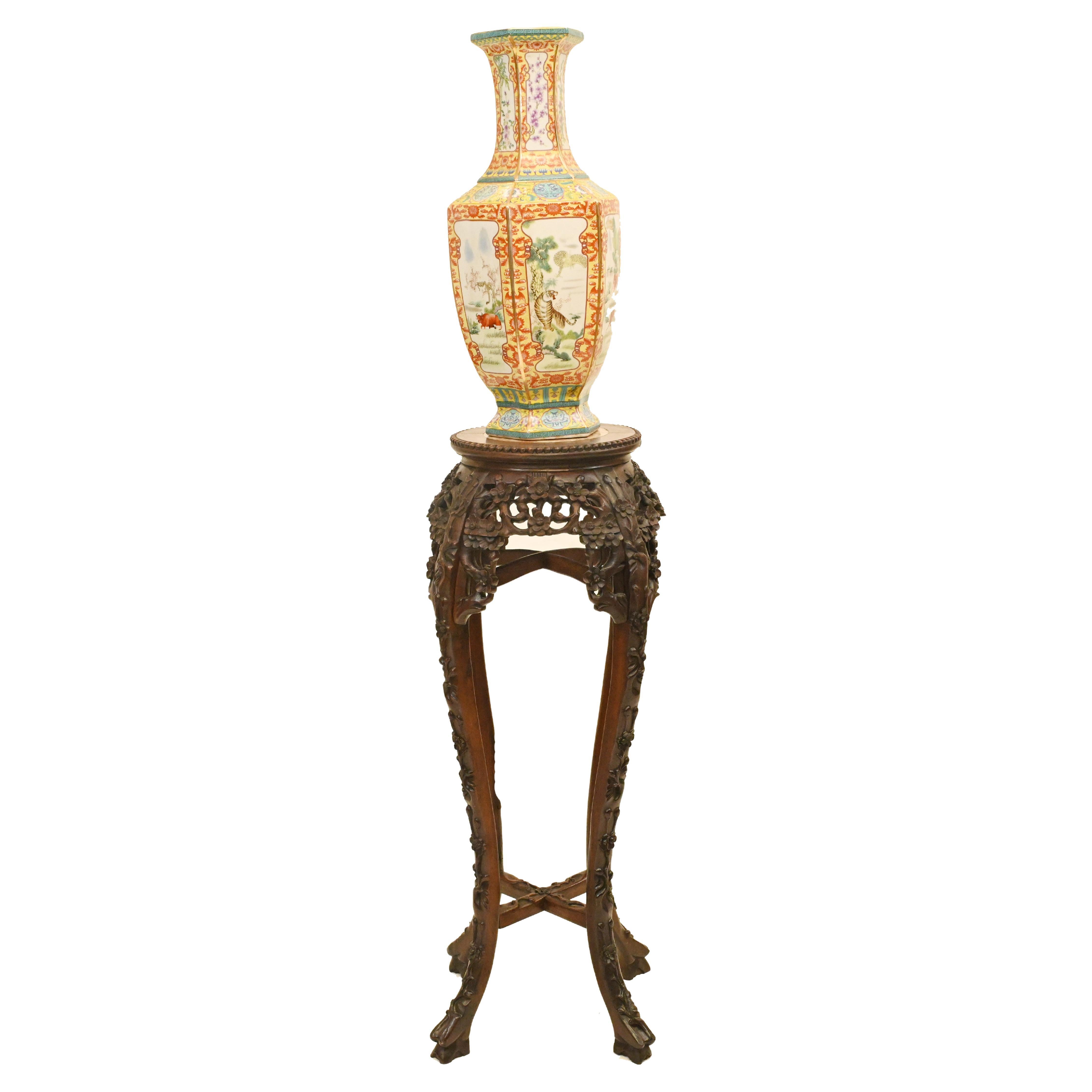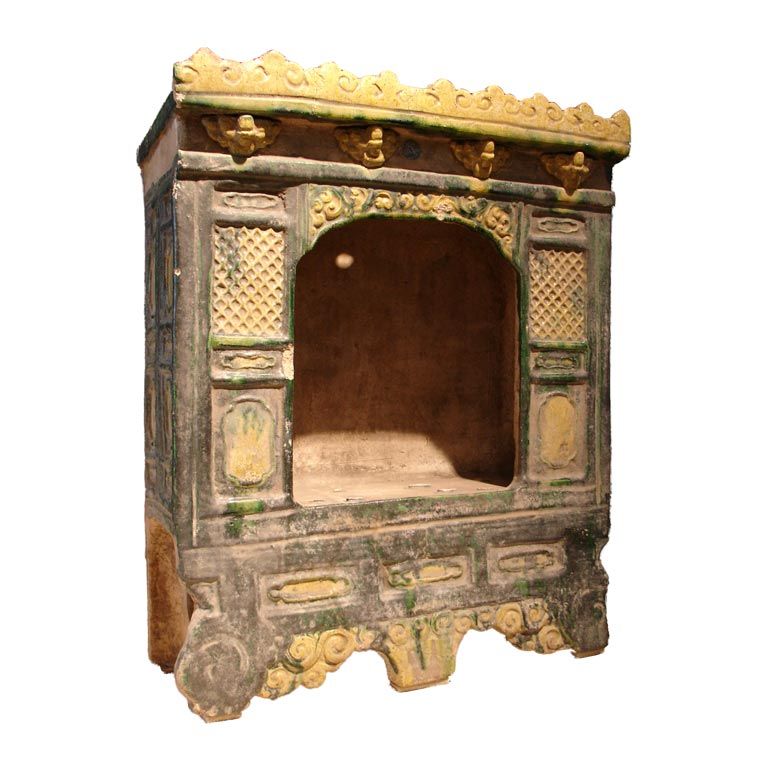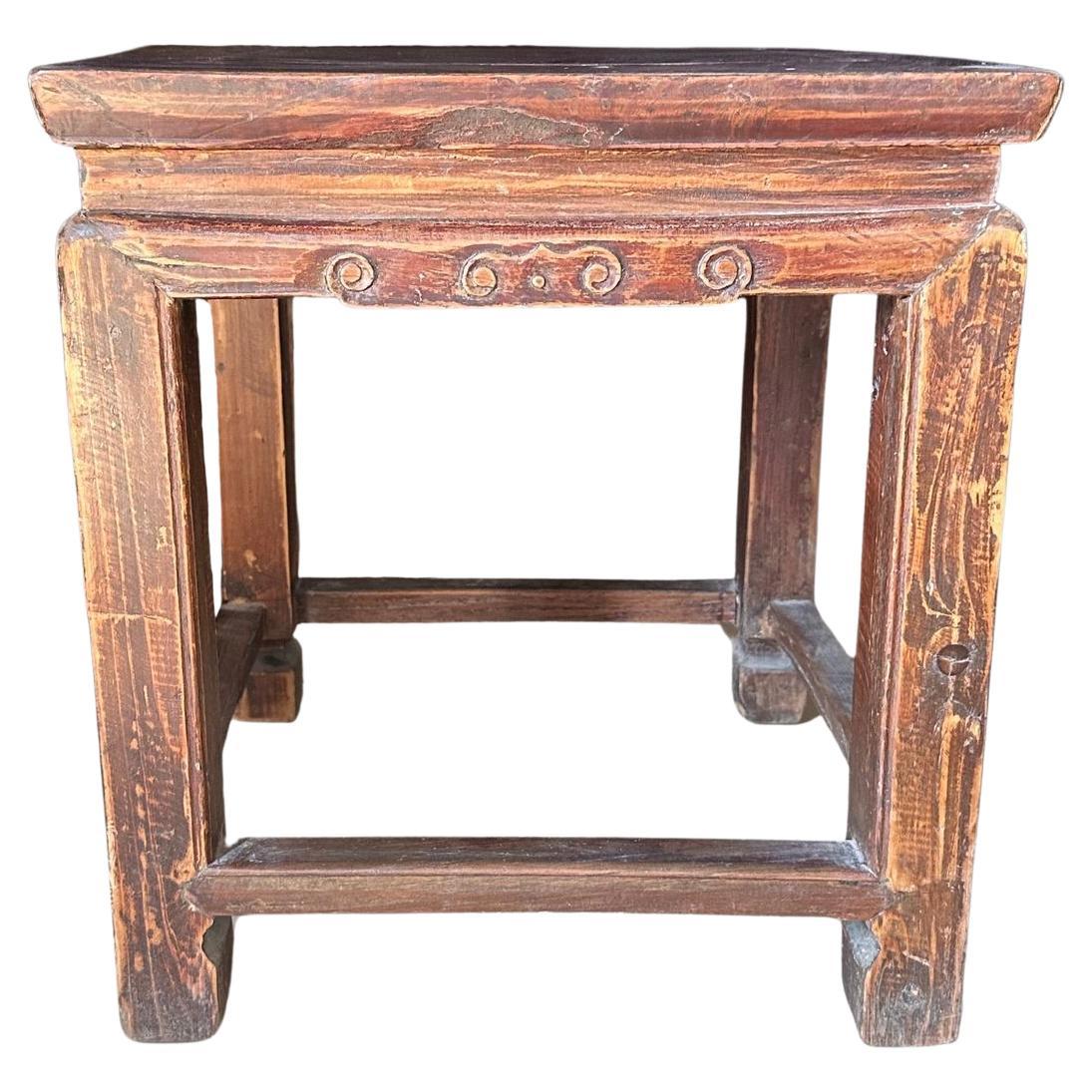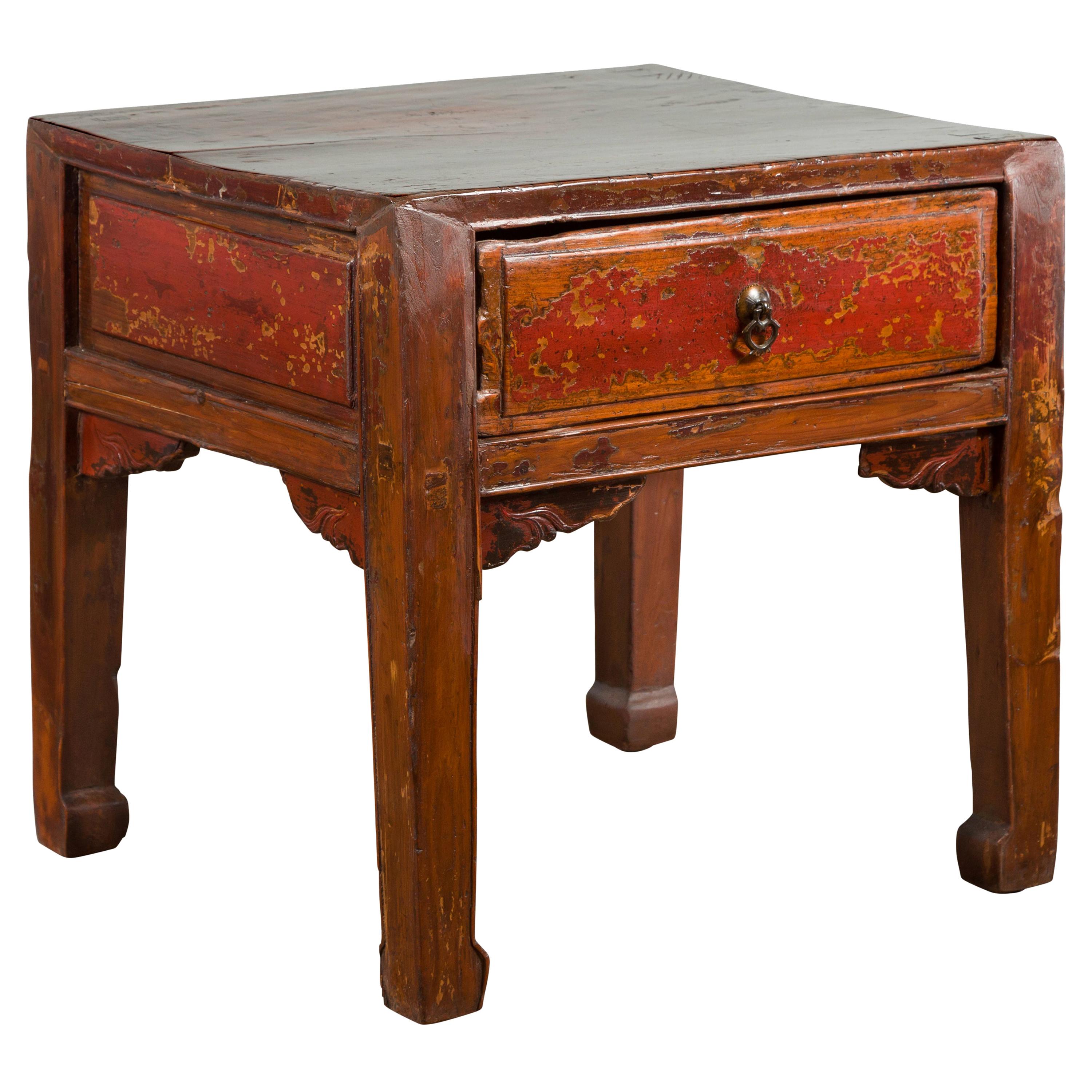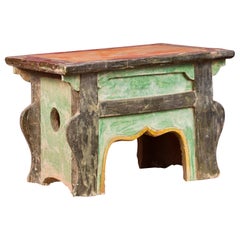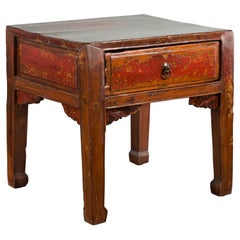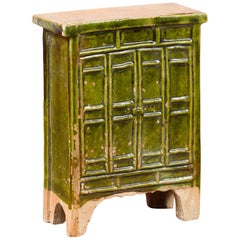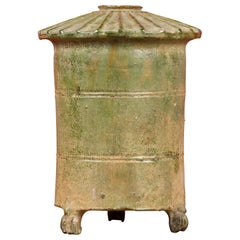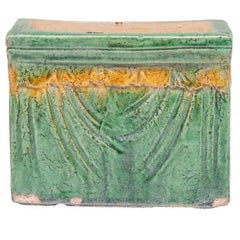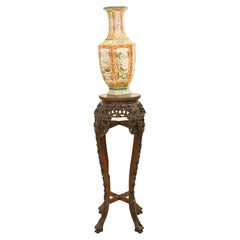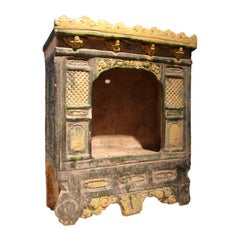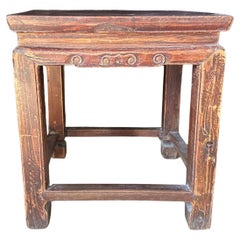Items Similar to Petite Chinese Ming Dynasty Period Glazed Pedestal with Polychrome Finish
Want more images or videos?
Request additional images or videos from the seller
1 of 13
Petite Chinese Ming Dynasty Period Glazed Pedestal with Polychrome Finish
$1,800
£1,384.68
€1,607.22
CA$2,538.43
A$2,843.47
CHF 1,493.49
MX$34,575.66
NOK 18,912.49
SEK 17,953.04
DKK 11,995.30
About the Item
A petite Chinese Ming Dynasty glazed pedestal from the 15th or 16th century with polychrome finish. Crafted in China during the prestigious Ming Dynasty, this petite pedestal table charms us with its polychromy and elegant lines. A rectangular top sits above an elegant base adorned with arching apron and green, black and yellow tones. An excellent decorative addition to any home!
- Dimensions:Height: 12.75 in (32.39 cm)Width: 19 in (48.26 cm)Depth: 13 in (33.02 cm)
- Style:Ming (Of the Period)
- Materials and Techniques:Ceramic,Glazed
- Place of Origin:
- Period:
- Date of Manufacture:16th Century
- Condition:Wear consistent with age and use. Age-appropriate wear and maintenance. Please refer to the various additional photos for further condition detail and contact us with any questions!
- Seller Location:Yonkers, NY
- Reference Number:Seller: YN7353 / FEA Home1stDibs: LU863924838742
About the Seller
5.0
Platinum Seller
Premium sellers with a 4.7+ rating and 24-hour response times
Established in 1968
1stDibs seller since 2009
1,163 sales on 1stDibs
Typical response time: <1 hour
- ShippingRetrieving quote...Shipping from: Yonkers, NY
- Return Policy
Authenticity Guarantee
In the unlikely event there’s an issue with an item’s authenticity, contact us within 1 year for a full refund. DetailsMoney-Back Guarantee
If your item is not as described, is damaged in transit, or does not arrive, contact us within 7 days for a full refund. Details24-Hour Cancellation
You have a 24-hour grace period in which to reconsider your purchase, with no questions asked.Vetted Professional Sellers
Our world-class sellers must adhere to strict standards for service and quality, maintaining the integrity of our listings.Price-Match Guarantee
If you find that a seller listed the same item for a lower price elsewhere, we’ll match it.Trusted Global Delivery
Our best-in-class carrier network provides specialized shipping options worldwide, including custom delivery.More From This Seller
View AllPetite Chinese Ming Dynasty Period Glazed Table with Polychrome Finish
Located in Yonkers, NY
A petite Chinese Ming Dynasty glazed table from the 15th or 16th century with polychrome finish. This petite Chinese Ming Dynasty glazed table from the 15th or 16th century captivates with its polychrome finish and refined proportions. Crafted during the celebrated Ming period, the table features a rectangular top that gracefully rests above an elegantly carved base. The arching apron below is adorned with delicate curves, further enhanced by a delightful palette of green, black, and yellow tones, showcasing the artistic spirit of the era.
The polychrome glaze, subtly weathered by time, adds character and a sense of history, making this table a charming addition to any interior. Whether displayed as a standalone piece or paired with other decorative elements, this antique Ming Dynasty table...
Category
Antique 16th Century Chinese Ming Ceramics
Materials
Terracotta
Chinese 19th Century Qing Dynasty Distressed Side Table with Cinnabar Underglaze
Located in Yonkers, NY
A Chinese Qing Dynasty period side table with single drawer from the 19th century, with horse hoof legs, cinnabar underglaze and distressed patina. Created in China during the Qing Dynasty, this side table features a rectangular top sitting above an apron concealing a single drawer showcasing a cinnabar underglaze echoed on the side panels. Boasting a nicely weathered patina, the table is raised on four straight legs with horse hoof extremities, connected to the apron thanks to carved spandrels. With its nice proportions and distressed appearance, this 19th century Chinese Qing Dynasty side table...
Category
Antique 19th Century Chinese Qing Side Tables
Materials
Wood
Chinese Ming Dynasty Period Green Glazed Miniature Armoire with Bracket Feet
Located in Yonkers, NY
A Chinese Ming Dynasty period miniature terracotta armoire with green glazed finish and bracket feet. Created in China during the Ming Dynasty (1368 - 1644), this exquisite miniature...
Category
Antique 17th Century Chinese Ming Ceramics
Materials
Terracotta
Petit Chinese Ming Dynasty 17th Century Terracotta Granary with Verdigris Patina
Located in Yonkers, NY
A 17th century Chinese Ming Dynasty granary hand made from terracotta with a verdigris patina. This exquisite 17th century Chinese Ming Dynasty granary, meticulously handcrafted from...
Category
Antique 17th Century Chinese Ming Ceramics
Materials
Terracotta
Late Qing Dynasty Period Side Table with Pillar Strut Motifs and Scroll Feet
Located in Yonkers, NY
A Late Qing Dynasty period side table with pierced apron adorned with pillar strut motifs and scrolling design on the feet. This Late Qing Dynasty period side table is a true testame...
Category
Early 20th Century Chinese Qing Side Tables
Materials
Wood
Chinese Qing Dynasty 19th Century Carved Low Elm Table with Ming Stone Inset
Located in Yonkers, NY
A Chinese Qing Dynasty low elm table from the 19th century, with Ming stone inset, carved spandrels and recessed cartouches. Created in China during the Qin...
Category
Antique 19th Century Chinese Qing Coffee and Cocktail Tables
Materials
Stone
You May Also Like
Chinese Miniature Mingqi Skirted Table
Located in Chicago, IL
This miniature ceramic table is from Shanxi Province and may have been made to represent Mingqi, a type of ancient Chinese burial good. Mingqi were plac...
Category
Antique 15th Century and Earlier Chinese Ming Ceramics
Materials
Ceramic
Antique Chinese Pedestal Stand Table Carved, 1840
Located in Potters Bar, GB
Wonderful antique Chinese pedestal stand.
Carved from hardwood we date this to circa 1840.
Great for displaying decorative pieces such as bu...
Category
Antique 1840s Furniture
Materials
Other
Chinese Ming Dynasty Sancai Glazed Pottery Architectural Model, 16th Century
Located in Austin, TX
An unusually large Chinese Ming Dynasty glazed pottery architectural model of a shrine or cabinet, Ming Dynasty (1368 - 1644), circa 16th century, China.
The shrine model crafted o...
Category
Antique 16th Century Chinese Ming Sculptures
Materials
Pottery
Antique Qing Dynasty Light Elm Wood Stool
By Asian Modern
Located in Jimbaran, Bali
This exquisite Qing Dynasty elm wood stool from circa 1890 epitomizes the artistry and craftsmanship of the era. Handcrafted from premium elm wood, the stool features a square seat w...
Category
Antique 19th Century Chinese Qing Furniture
Materials
Wood, Elm
Antique Chinese export ornately carved marble topped pedestal
Located in Allentown, PA
This is a Chinese export ornately carved marble topped pedestal. This pedestal has four ornately carved legs with beautifully carved botanical elements around the apron and base. The...
Category
Vintage 1920s Chinese Chinese Export Pedestals
Materials
Wood
Large 19th Century Chinese Porcelain Jardinière on Carved Wooden Stand
Located in Dallas, TX
Beautiful large Chinese enameled porcelain jardiniere with carved wooden stand. Jardiniere features a white background with four round medallions depicting country life scenes. Decor...
Category
Antique Late 19th Century Chinese Qing Ceramics
Materials
Ceramic, Wood
More Ways To Browse
Antique Black Furniture Finish
Ming Dynasty
Ming Dynasty Furniture
Chinese Ming Dynasty
Antique Ming Dynasty
Ming Dynasty Art
Chinese Yellow Glaze
Chinese Ming Table
Ming Green
Ming Dynasty Glazed
Ming Dynasty Furniture 16th Century
Ming Dynasty Table
Chinese Green And Black Ceramic
Green Ming Dynasty
Antique Chinese Pedestal Table
15th Century Chinese Porcelain
Antique Chinese Pottery Figures
Yuan Dynasty
